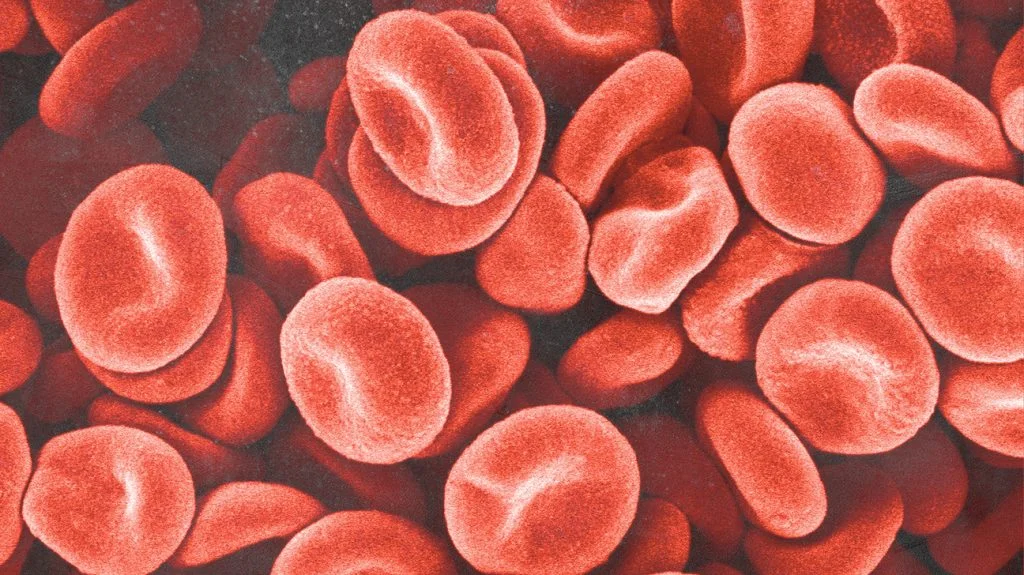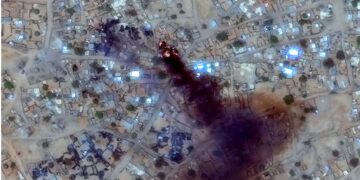In a groundbreaking moment for medical science, a French woman from Guadeloupe has become the only known individual in the world to carry a newly identified blood type.
Named “Gwada negative,” this blood group marks the 48th recognized blood type system and was officially acknowledged by the International Society of Blood Transfusion (ISBT) in June. The discovery adds an extraordinary chapter to the growing field of transfusion medicine and genetic science.
A 15-Year-Long Journey to Discovery
The story of Gwada negative began 15 years ago during what seemed to be a routine medical check-up. The woman, then 54 years old and living in Paris, was undergoing standard pre-surgical testing when something unusual was detected in her blood sample.
Medical experts found an unknown antibody, raising questions that existing scientific resources could not immediately answer. In 2011, this mysterious antibody stood out, but due to limitations in technology and resources, further investigations stalled.
It wasn’t until 2019 that a major breakthrough came. Using high-throughput DNA sequencing techniques, researchers from the French Blood Establishment (EFS) finally decoded the genetic mystery. What they found was a genetic mutation that had never before been observed and it was this mutation that gave rise to the new blood group.
Why the Name “Gwada Negative”?
The new blood type was named Gwada negative in honor of the woman’s Caribbean heritage. “Gwada” is a colloquial name for Guadeloupe, the island she hails from. According to Thierry Peyrard, a medical biologist at EFS who played a key role in the discovery.
The name was not only a tribute to the woman’s roots but also appealing to scientists because it “sounds good in all languages.” The woman inherited the mutation from both of her parents, making this case even more unique and scientifically significant.
What Are Blood Types and Why Do They Matter?
Most people are familiar with the ABO-Rh blood grouping system. The four basic blood types — A, B, AB, and O each come in positive or negative varieties, based on the presence or absence of the Rh factor.
This system is essential in ensuring that blood transfusions are safe. A mismatch in blood type can cause the immune system to attack the transfused blood, leading to potentially fatal complications.
However, human blood is much more complex. Scientists have identified over 600 blood cell antigens, which theoretically means millions of unique blood types exist.
Despite this variety, most transfusions are successful because the body doesn’t react to all antigens with equal aggression. In fact, transfusions within the ABO-Rh system are 99.8 percent successful. But that still leaves room for rare, undetected antibodies to cause problems, especially for patients with ultra-rare blood types.
Read More: Dr Mohammad Yunus: An eye of new Bangladesh
The Importance of Recognizing Rare Blood Types
The discovery of Gwada negative is not just a medical curiosity. It has real-world implications for patient safety. Rare blood types can complicate transfusions, organ transplants, and even pregnancies.
Understanding and identifying these blood types is crucial in preventing life-threatening immune responses. When someone receives blood that their immune system views as foreign, it can result in hemolytic reactions, where the body destroys the transfused blood cells.
This is why discoveries like Gwada negative are so important. They not only expand our understanding of human genetics but also help medical professionals make more informed decisions in high-risk scenarios.
The identification of this new blood type enhances our ability to match donors and recipients more accurately, especially for people with uncommon genetic backgrounds.
Science Behind the Discovery
The game-changer in identifying Gwada negative was advanced gene sequencing technology. This powerful tool allowed scientists to explore the DNA of the patient in unprecedented detail.
According to Peyrard, the use of high-throughput DNA sequencing revealed the genetic mutation responsible for this unique blood group. It’s another example of how modern technology is transforming healthcare by providing insights that were previously unattainable.
This isn’t the first time genetic analysis has unveiled a new blood type. The Er blood group, which became the 44th recognized system in 2022, was also identified through similar genetic advancements. The frequency of such discoveries has increased with the progress of genomic tools, suggesting that the official list of blood types is far from complete.
A Rare Case That Makes Medical History
The woman’s case is the only known instance of Gwada negative in the world. Scientists confirmed that she inherited the gene mutation from both of her parents, making it a recessive genetic trait. This makes the case all the more extraordinary not only because it is rare, but because it may have gone unnoticed if not for the detailed screening she underwent before surgery.
This revelation is expected to help improve diagnostics and screening for other individuals with similar genetic makeups. It also reinforces the importance of documenting rare blood types and creating a global database for medical reference. That way, if someone else with the same mutation is found, there will already be knowledge in place to ensure their safe treatment.
With Gwada negative now added to the ISBT registry, the total number of recognized blood group systems stands at 48. This number is likely to grow.
Experts believe that as gene sequencing becomes even more refined and widespread, more previously unidentified blood types will come to light. The ISBT had only recognized 47 blood types until this addition, and the pace of discovery is clearly accelerating.
Many of the latest discoveries have been the result of studying individuals from diverse ethnic backgrounds. This highlights the importance of inclusive medical research. Populations that have historically been underrepresented in genetic studies may hold the key to solving other unknowns in transfusion medicine.
The EFS and ISBT are now working to integrate the knowledge of Gwada negative into wider medical practice. This includes updating blood bank databases, educating transfusion specialists, and raising awareness among clinicians.
As with all rare blood types, there are also efforts underway to see if any blood banks globally may have stored samples that unknowingly contain Gwada negative blood.
In the future, the hope is that with increased awareness and genetic screening, blood donors with rare or undiscovered blood types can be identified more proactively. This would improve the efficiency of blood banks, allow for safer transfusions, and potentially save lives.
The discovery of Gwada negative is more than just an addition to a medical chart. It is a testament to the power of science, persistence, and technological innovation. What began as an unexplained antibody in a routine test evolved into one of the most fascinating findings in transfusion medicine.
This milestone also serves as a reminder that every person’s biology holds secrets that can shape global knowledge. As researchers continue to map the intricate landscape of human blood, each rare discovery brings us closer to more personalized, safe, and effective healthcare for all.
In the smallest details of one person’s blood, the world has found a new piece of the human puzzle.


















